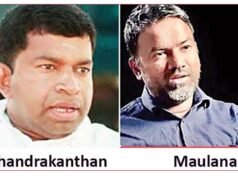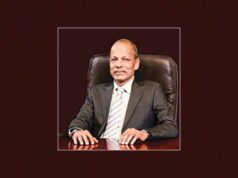Political propaganda is double-edged. Hence the need to handle it carefully lest it should backfire. One may recall that before the 2019 presidential election, a prominent Buddhist monk blundered by asking SLPP candidate Gotabaya Rajapaksa to act like Hitler. The then Opposition made Gotabaya out to be Hitler incarnate thereafter. JVP/NPP stalwart Lal Kantha, addressing a campaign rally in the run-up to the September presidential election, pledged to vest villagers with some judicial powers. The opponents of the JVP/NPP raised hell, claiming that the JVP was planning to reintroduce kangaroo trials. President Anura Kumara Dissanayake has drawn heavy flak for asking the people to get rid of the Opposition and elect 225 NPP MPs in the upcoming general election. Besides, in a bid to discredit the government, the Opposition is now using a rhetorical statement made by Lakshman Nipuna Arachchi, an NPP candidate in the current parliamentary election fray, about trade unions. Addressing an election rally, Nipuna Arachchi said the other day that trade unions had become redundant as the NPP government was now looking after the interests of the working class; there was no need for labour struggles, and the NPP should consider disbanding the trade unions affiliated to it.
The Opposition parties have given a twist to Nipuna Arachchi’s statement to suit their own narratives and agendas. Some of them have claimed the NPP has issued a not-so-veiled threat to Sri Lanka’s trade union movement.
Nipuna Arachchi’s statement boils down to mere campaign rhetoric. Those who are out of power usually see more devils than vast hell can hold and cry wolf at the drop of a hat. That is the name of the game in Sri Lankan politics.
The JVP-led NPP has however brought to light, albeit unwittingly, an important issue that has gone unaddressed all these years—the over-politicisation of trade unions, which have been reduced to mere appendages of political parties as a result.
Political spectacles that pass for May Day rallies in this country are cringeworthy. Workers carry politicians on their shoulders, making a public display of their servility. In fact, May Day rallies have become political dog-and-pony shows.
Trade unions with political agendas do not hesitate to subjugate the interests of workers and the country to their parties’ agendas. There are a handful of independent unions, but they are the exception that proves the rule. Thus, one may argue that the JVP/NPP should seriously consider disbanding its trade union wing forthwith, as Nipuna Arachchi has suggested. Other political parties with trade union arms ought to follow suit.
Much is being spoken these days about the need to bring about a new political culture. There is also a need for a new trade union culture, which is a prerequisite for serving the interests of workers and achieving economic development. Sri Lanka lacks a work ethic, without which national productivity cannot be increased to achieve economic progress. Most trade unions only make demands and never do they concentrate on their members’ duties and responsibilities. They are also responsible for having rendered the state sector inefficient and unproductive. A stock of biometric attendance marking devices procured by the Health Ministry at a cost of Rs. 30 million remains unused due to trade union resistance, we are told. The health sector has therefore become notorious for overtime rackets. This is how trade union power is abused. Most labour unions in the private sector are no better.
Sri Lankan trade unions ought to learn from their counterparts in other countries, such as Japan, how to act responsibly and help the country achieve progress while protecting labour rights. That said, the blame for the sorry state of affairs in this country should be apportioned to successive governments and most private sector employers. The only way workers can have themselves heard and their grievances redressed, in most cases, is to protest or down tools, and the trade union arms of political parties make the most of this situation.
Sri Lanka has set for itself ambitious economic goals and debt repayment targets. None of them may be attainable unless national productivity is enhanced substantially with employees, employers, trade unions and politicians putting their shoulders to the wheel. This task requires healthy relations and cooperation among key stakeholders. Hence the pressing need for a radical rethink of trade unionism in this country.








